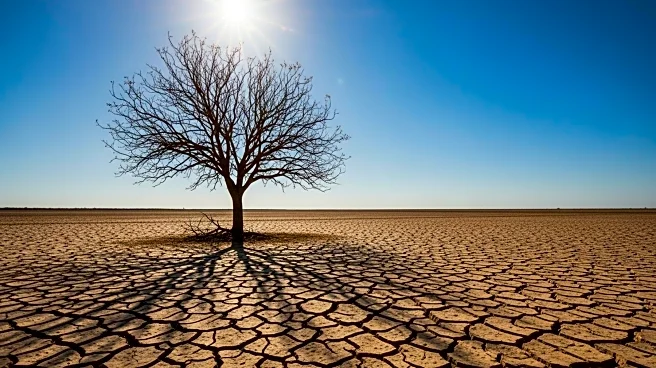What's Happening?
A study conducted by researchers at Imperial College London has revealed that climate change-driven heatwaves resulted in at least 1,147 deaths in the UK over the summer. The study utilized modeling, historical mortality records, and peer-reviewed methods to estimate fatalities. The UK experienced its hottest summer on record, with temperatures increased by an average of 2.2C due to human-induced global warming. The heat was responsible for 68% of the 24,400 total heat deaths across 854 European cities or areas during the summer months. The study highlights the silent nature of heat-related deaths, which often go unreported due to underlying conditions exacerbated by high temperatures.
Why It's Important?
The findings underscore the urgent need for governments to address climate change by reducing fossil fuel use and emissions. The study serves as a reminder that climate change is a present issue, not one to be deferred. The impact of extreme heat is particularly severe for vulnerable populations, such as the elderly, who made up 85% of the excess deaths in Europe this summer. The research emphasizes the importance of resilience measures to mitigate the deadly effects of rising temperatures, which are expected to worsen if climate action is delayed.
What's Next?
The study calls for immediate action from governments to transition away from fossil fuels and implement policies to reduce emissions. As climate change continues to intensify, the frequency and severity of heatwaves are likely to increase, posing greater risks to public health. The researchers advocate for enhanced reporting and monitoring of heat-related deaths to better understand and address the impacts of extreme temperatures.
Beyond the Headlines
The study highlights the ethical responsibility of governments to protect their citizens from the adverse effects of climate change. It also raises questions about the adequacy of current public health systems in responding to climate-induced health crises. The long-term implications of unchecked climate change could lead to more frequent and severe weather events, necessitating a reevaluation of infrastructure and emergency preparedness.








